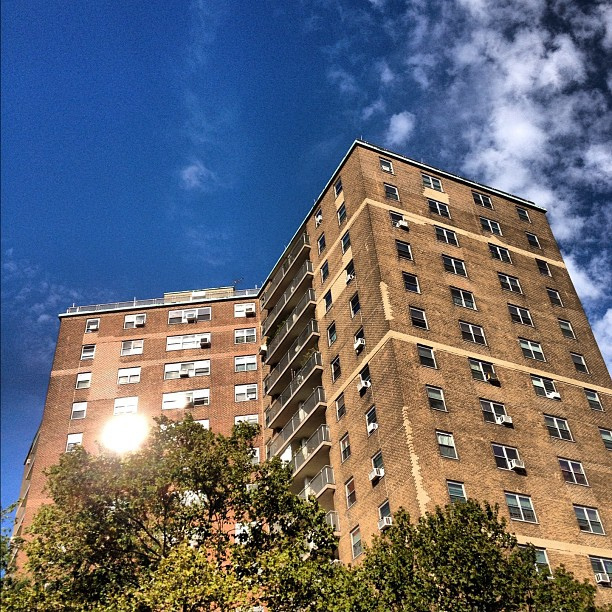BY GERARD FLYNN | Under the New York City Charter, each city agency is allowed to make internal rule changes it deems necessary to carry out its function, without a vote before the City Council. This gives agencies like the Department of Housing Preservation and Development the authority to make sweeping changes with potentially broad implications, such as recent rule changes to an affordable housing program dating back to the 1950s.
Before the rules can be implemented, however, the public must be given a chance to weigh in. And on Nov. 6 at H.P.D.’s offices, many individuals did, upset at proposed changes to the Mitchell-Lama program, enacted in 1955 to make housing affordable for low- and middle-income people.
Some of the proposed rule changes are minor and have even drawn praise. But a number of them provoked the scorn of irate tenants, housing activists and even city politicians, who see the changes as facilitating the deregulation of thousands of affordable units currently protected under the program. Chief among their concerns is the rule governing succession rights.
Specifically, the proposed modification would eliminate succession rights for uncles, aunts, nephews and nieces. Also, H.P.D. would only authorize succession if the primary leaseholder has died or been transferred to a nursing home, leaving the next applicant with 90 days to apply, much too short, critics said, for a relative in mourning. Ambiguity about what exactly defines a “surviving” spouse has also left many L.G.B.T. activists demanding clarification, amid concern that the parameters may be discriminatory.
Local City Councilmember Rosie Mendez submitted testimony at the hearing. She did praise changes that give preference to veterans. But she slammed the rest of the proposed rules because they “would have a disparate impact on heterosexual or L.G.B.T. couples who choose not to marry.”
Mendez expressed grave concern about one of the provision’s proposals, which, many charge, would facilitate Mitchell-Lamas transforming into Housing Development Fund Corporations (H.D.F.C.’s). Allowing such a change would eventually end the Mitchell-Lama program as we know it, she said.
Because state tax subsidies also fund the Mitchell-Lama program, D.H.C.R. is charged with oversight of many these developments in the city. However, the new rules strictly affect buildings under the oversight of H.P.D.
At Village View, an East Village Mitchell-Lama complex, tenants raised these fears, amid concern the rule changes would accelerate deregulation and result in a loss of their rights and, ultimately, eviction. Some tenants spoke approvingly of news that single occupants in two- and three-bedroom apartments would face a shift to smaller units. But deregulation for a fixed-income tenant could spell serious trouble, noted Sue Susman, a retired Brooklyn College law professor who lives in a former Mitchell-Lama that privatized.
Tenants in a privatized buildings, for example, can make demands on management, such as for major capital improvements (M.C.I.’s), tacking substantial increases onto maintenance costs and creating serious problems for elderly tenants with only a pension and, thus, the inability to meet a substantial maintenance hike.
At Village View, many tenants must pay around $20,000 to get an apartment, after spending time on the waiting list. That is substantially less than the kind of mortgage private shareholders would be forced to pay.
However, rumors about impending privatization are unfounded, said Dr. Frank Gardner, the treasurer of the complex’s board of directors. Village View, which opened in 1964, today has just under 1,300 units. Gardner said that, if anything, complaints the board is getting from many tenants about the proposed rule changes may drive them closer to privatization.
“These rules are making people ask, ‘Why should we stay with H.P.D.?’” he said. He added that H.P.D. has too many rules as is, effectively making tenants “vassals” to the agency, and with less control as a consequence. Since news got around about the proposal, tenants have been getting increasingly irate and have been asking a lot more about privatization, he noted.
Gardner added that, while he isn’t an expert on the issue, and while the board has no intentions, at this stage, of deregulating the complex, he is getting up to speed, because of increasing chatter from tenants. So, he said, he feels “a responsibility to know more” about privatization.
In a letter to state Senator Brad Hoylman, Daisy Klein, an elderly resident, pleaded for his attendance at the hearing. She told Hoylman the new rules are “giving ammunition to those who want Village View to go private,” and that the changes would “greatly handicap” attempts to keep Village View in the Mitchell-Lama program.
Hoylman and fellow state Senator Brian Kavanagh, whose districts include many buildings in the program, agreed with Klein. In a letter submitted at the hearing, they criticized the proposed changes in succession rights and the proposal’s provisions that undermine the affordable housing program.


































